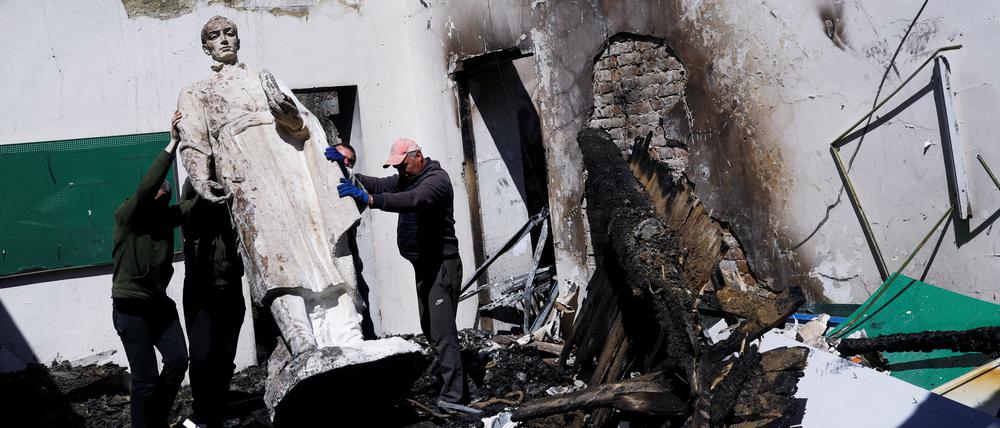Unwinding Empire
2022
Russia's war against Ukraine is not only a war on the territory or against the people. It’s a war on culture. It’s a war preceded with ideological manifestos, shifts in knowledge and senses production structures, and the disintegration of the freedom of speech. The layers behind the surface of this war bring us decades and centuries in the past.
In this project, together with critics and scholars, we are trying to analyze these backgrounds in Ukrainian and Russian history and culture and share it with international audiences in popular media outlets.
Unwinding Empire has two series of articles.
The first one, curated by Dr. Sofia Dyak and Dr. Mayhill C. Fowler, focuses on the history and culture on the territory of contemporary Ukraine beyond the headlines, beyond the images people see every day in the news, to share the stories and analysis of experts on this region with a wider public. Highlighting the region’s diverse and dynamic past, we hope to create windows for international readers into Ukraine, and Eastern Europe more generally. By offering stories such as constructivist architecture in Kharkiv to stories of resistance in World War II to our colleagues’ complex family stories we highlight Ukraine as a place in its own right, and a place worth our attention.
The second series, curated by Daria Badior and Anastasiia Platonova, focuses on contemporary culture in Russia and its global reach. As Edward W. Said wrote, “The power to narrate or to block other narratives from forming and emerging, is very important to culture and imperialism”. For too long “Russian” culture has — in Said’s term — orientalized Ukraine. We would like to delve deep into these long-held hierarchies articulated in the latest examples of art, music, films and literature, which are deeply connected to the ongoing war in Ukraine. We want to present a post-colonial stance on Russian culture. In this series, we also elaborate on contemporary Ukrainian culture makers, artists and writers, whose biographies and art help explain life in Ukraine over the last several years.
Published articles
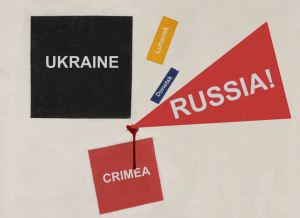
Why We Need a Post-Colonial Lens to Look at Ukraine and Russia, by Daria Badior
Hyperallergic / March 9, 2022“In a way, Russian culture has never stopped being imperial, fixated on centers (have you ever heard of decentralization in Russia? No, right?), and almost never supporting peripheries. It seems that culturemakers in Russia never asked themselves where anything came from, including funding, museum objects, worldwide accolades, and big international projects that seemed so easy to produce and promote.”
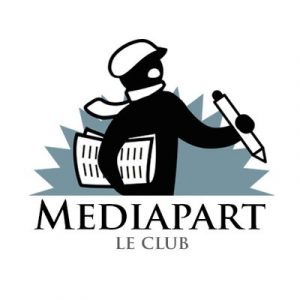
Cannes: en réponse au boycott des films russes, by Serhiy Ksaverov
Le Club de Mediapart / March 9, 2022“Russian cultural product, whether it wants or not, represents Russia. Even made by protesting artists, especially among those who reside in Russia. Because along with outright propaganda films they conclude two sides of the same coin which is beneficial for both sides one way or another — Putin’s regime and cultural opposition. In short, I don’t think they are the two struggling forces. They are the parts of the one system.”
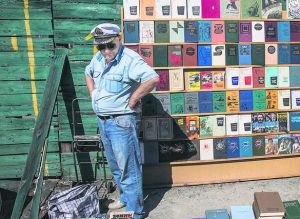
Sprache und Krieg: „Russisch ist eine Trophäe, die wir behalten“, by Kateryna Botanova
Der Tagesspiegel / March 18, 2022“Is there a chance that now is the final language battle and never again any of us would need to explain to the Global West the “differences and similarities” between Ukrainian and Russian languages and cultures, the language map of Ukraine, her colonial past, her present multilingualism, and the fact that speaking Russian does not make you Russian?”
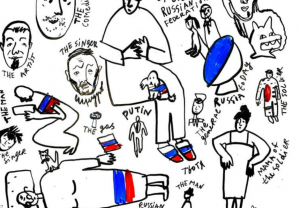
Not all criticism is Russophobic: on decolonial approach to Russian culture, Lia Dostlieva, Andrii Dostliev
BLOK Magazine / March 29, 2022“The war has unearthed the problem that should have been addressed a long time ago: in the whirlwind of statements on the war in Ukraine, not all voices are heard equally. Even today, the hierarchy of the rights to exercise agency still reflects the colonial narratives, and it results in the unpreparedness to accept Ukrainian voices as equal.”
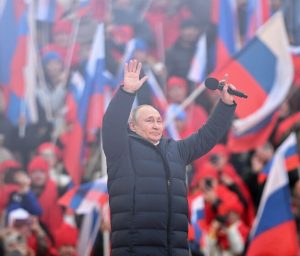
Ukraińska dziennikarka oskarża w OKO.press rosyjskie elity. Nie róbcie z siebie ofiar Putina, by Daria Badior
OKO Press / April 2, 2022“For 80 years there has been a discussion about the responsibility for the totalitarian regimes and the accompanying crimes against humanity that rests not only with the leaders of these regimes. This responsibility should also be assumed by those who were embedded in the hierarchies of totalitarian states; who, in one way or another, were the mediums for imperial narratives and did not contradict them; who did not subject them to critical reflection and did not question their legitimacy.”

«Propagande» : lettre ouverte à Reporters sans Frontières, by Anna Koriagina
Le Club de Mediapart / April 4, 2022“C’est ce que je reproche aux médias français : leur cœur bat pour les enfants de Marioupol mais leur cerveau rêve encore avec Dostoievsky que « la beauté sauvera le monde ». J’aimerais qu’ils comprennent que c’est l’Ukraine qui est en train de sauver le monde.”

Theater in Oekraïne, by Mayhill C. Fowler
De Groene Amsterdammer / April 9, 2022“Culture reifies hierarchies, but it can also challenge them. “Theater in Ukraine” today might mean largely the horror of the Mariupol Dramatic Theater, where, as of today, rescuers still cannot save people because of continued Russian shelling. But theater in Ukraine means more than shelters; in fact, this region has a rich theatrical culture. You might think theater is unimportant, or rather, hardly as central to comprehending Ukraine as geopolitics, diplomacy, or Putin. But in fact theater reflects society, especially in a place like Eastern Europe, where theater acquired special meaning because for long periods of time there was not a political nation, or clear avenues for political expression.”
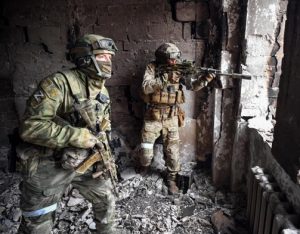
We need to talk about the influence of Russian culture, by Daria Badior
The Independent / April 19, 2022“Decolonising prominent cultural institutions means not simply marking one country as an empire and the other as a colony (in the eastern European situation, these markings are fluid, complex, and require an intellectual precision), but also giving voice to those who aren’t present as much as the “imperial” representatives in the media, festival programmes, and university curriculums. By putting Russian and Ukrainian filmmakers in the same statements, panel discussions, and thematic programmes, in my opinion, film festivals continue to spotlight the former and diminish the latter.”

Décoloniser les toponymes ukrainiens, by Nadia Bernard-Kovalchuk
Le Club de Mediapart / April 29, 2022“Jusqu’à récemment le mécanisme de transposition des toponymes ukrainiens en anglais et en français consistait à les coller systématiquement à la prononciation ou à l’écriture en russe. Considérant ces usages comme un résidu malsain d’une époque marquée par la domination impériale russe sur leur pays, les Ukrainiens demandent d’adapter l’écriture de toponymes à leur prononciation en ukrainien.
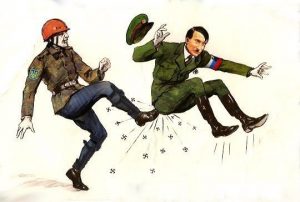
Ukraine as an Active Subject: In Search of a New Language, by Ivan Kozlenko
Krytyka / April 2022“Ukraine’s return to the international arena requires a revision of the majority of familiar notions in humanities. Therefore, the language we might suggest for the description of the new postwar world is of paramount importance.”
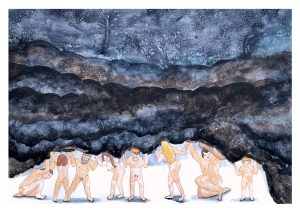
Defined by silence — The Ukrainian art that was destroyed and the art that never happened, by Kateryna Botanova
Eurozine / May 12, 2022“Ukrainian artists are struggling to invent a new language to express their experience of the war, one that goes beyond tropes and commonplaces. Some of them frantically document, others reflect in hurried sketches while on the run with their kids. Many artists don’t create at all – they are on the frontlines.”

Selbstkritik vergeblich gesucht: Die leidige Rolle der russischen Intellektuellen, by Daria Badior
Der Tagesspiegel / May 12, 2022“For the last month, we are having a big conversation on important topics: the role of culture during the war, unfolding decolonization processes and the life all of us are going to have after the war. For Russians to join this conversation, they need to reassess their actions and think of what was not done to prevent this war.”

Quand le Festival de Cannes essaie de taper fort, by Anna Koriagina
Le Club de Mediapart / May 16, 2022“La Russie vient de larguer 12 missiles sur ma ville natale de Krementchouk, dans la région de Poltava en Ukraine. Chez moi, à Paris, je me prépare à aller à mon 10e Festival de Cannes. Je me pose beaucoup de questions en ce mois de mai. Je me dis que le plus grand festival du monde tape fort mais complètement à côté.”
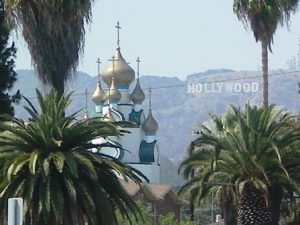
Tsars, spies and colonialism, by Olexandra Povoroznyk
Eurozine / May 20, 2022“Glass breaking and balalaikas: Hollywood has traditionally portrayed the Tsarist and Soviet Empires as ethnically homogenous, culturally uniform and exclusively Russian speaking. This unjust image lives on and reaffirms the imperial narrative behind the invasion of Ukraine.”
ABOUT CURATORS
Daria Badior is a freelance cultural critic, editor and journalist, co-founder of an NGO Coalition for Culture and co-curator of Kyiv Critics' Week film festival, in 2014-2021 a culture editor of online outlet LB.ua.
Dr. Sofia Dyak (PhD) is a historian and a director of the Center for Urban History (Lviv, Ukraine) and a senior research fellow at the Center for Contemporary History in Potsdam.
Dr. Mayhill C. Fowler (Ph.D) is a historian and associate professor in the Department of History at Stetson University, where she also directs the Program in Russian, East European, and Eurasian Studies, author of the book “Beau Monde on Empire's Edge: State and Stage in Soviet Ukraine” (Toronto, 2017).
Anastasiia Platonova is a journalist, cultural critic and editor with more than ten years of professional experience (Kyiv, Ukraine), in 2019-2021 a cultural editor of Forbes Ukraine.
The project is supported by the Institute for Human Science / Institut für die Wissenschaften vom Menschen
Credits
Cover image: © REUTERS / REUTERS/Ricardo Moraes
